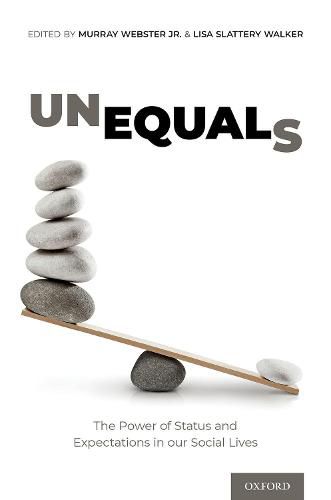Readings Newsletter
Become a Readings Member to make your shopping experience even easier.
Sign in or sign up for free!
You’re not far away from qualifying for FREE standard shipping within Australia
You’ve qualified for FREE standard shipping within Australia
The cart is loading…






This book presents the latest research on status generalization in a variety of settings, examining new interventions for its negative effects. Drawing from research on status processes in sociology, social psychology, education, organizations, mental health, and other fields, the book connects to several bodies of research that include stigma and stereotyping, exchange and power, and organizations. The first part of the book establishes the foundations and recent developments. Next, the book delves into elaborations, variants, and interrelations. Throughout, the book illustrates how status processes are evident in settings like school classrooms and others, where interventions can improve interaction and participation between advantaged and disadvantaged students, genders, organizational positions, races, other dynamics that may be impacted by social status and expectation. The book concludes with chapters on applications and interventions to reduce unwanted inequalities in social interactions and institutions.With its balanced, multidisciplinary approach to the challenges of social hierarchies and deep-rooted expectations, Unequals is an essential volume for all academic and scholarly readers interested in status processes and inequalities in our social lives.
$9.00 standard shipping within Australia
FREE standard shipping within Australia for orders over $100.00
Express & International shipping calculated at checkout
This book presents the latest research on status generalization in a variety of settings, examining new interventions for its negative effects. Drawing from research on status processes in sociology, social psychology, education, organizations, mental health, and other fields, the book connects to several bodies of research that include stigma and stereotyping, exchange and power, and organizations. The first part of the book establishes the foundations and recent developments. Next, the book delves into elaborations, variants, and interrelations. Throughout, the book illustrates how status processes are evident in settings like school classrooms and others, where interventions can improve interaction and participation between advantaged and disadvantaged students, genders, organizational positions, races, other dynamics that may be impacted by social status and expectation. The book concludes with chapters on applications and interventions to reduce unwanted inequalities in social interactions and institutions.With its balanced, multidisciplinary approach to the challenges of social hierarchies and deep-rooted expectations, Unequals is an essential volume for all academic and scholarly readers interested in status processes and inequalities in our social lives.